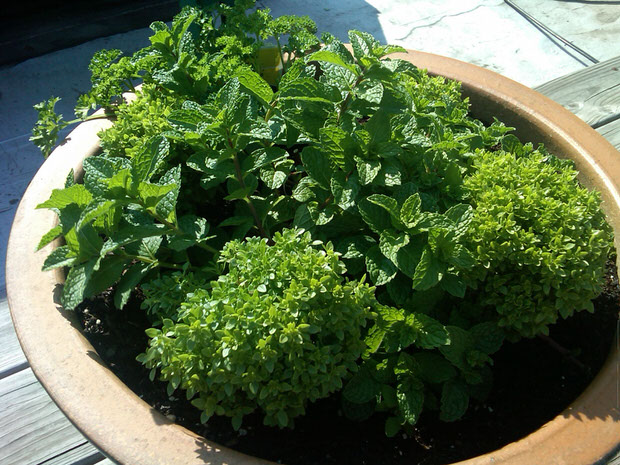






Just imagine your pasta and pizza without the finishing touch of oregano or the delicious mince dumplings without the pinch of sage! The outcome is sure to be bland and boring. This is what the herbs do for you’re your culinary skills—-they uplift the taste and flavor of any dish. In addition to that they make the dish look colorful and inviting. Thus the defining character of any dish is the work of appropriate herbs. While you can buy them in the local grocery stores, it is always better to home grow them in your backyard; the addition of garden fresh herbs will definitely make your gastronomic experience even more enjoyable.
Plant type
Before getting started in the task of herb gardening, you must learn about the different types of herbs. The herbal plants are of three types:
Annual—the herbs like basil, chamomile, dill, chives, lavender, lemon, mint, oregano rosemary, sage, tarragon or thyme are planted each spring and live for only one season.
Perennial—the herbs like catnip, balm, lovage, marjoram or thyme live for many years. Although they shake off the leaves during winter, their roots remain alive and in the turn of spring they bloom into new foliage.
Biennial—-The plant like Parsley grow for two years. The first season is for growing foliage, next the seeds are formed. After that they die at the end of the second season.
Choice of the location
For herb gardening the question as to where to plant is very critical. Not all the herbs have same light or temperature requirement.
While most of the herbs need exposure to the sunlight for at least 6 hours per day, the herbs likes chives, cilantro, dill, and mint are grown in the shade.
Soil type
Make sure of the soil requirement of a particular herb before planting one. In general an extra rich and over fertilized soil is not suitable for planting good quality herbs. Over fertilization kills the flavor of the herb by reducing the essential oil content of the herbs. The herbs do better in the moderately rich soil. In addition to that, your herb garden must have excellent drainage quality, so that soil does not contain extra water. Growing herbs in raised beds or containers is also a good idea.
Daily care of your herb garden
Just like the other vegetable plants, other herbs require about an inch of water per week. However, those planted in containers tend to dry out more quickly and hence need more frequent watering. To get a better grip with the soil keep garden beds weeded.
One interesting thing about herb plants is: they have inherent power to resist pests and disease attacks. This is due the aromatic natural oil, they are bestowed with; the aroma repel pests and insects naturally. Still, herbs are susceptible to the attack of insects like aphids, and diseases such as powdery mildew.
Keep this information in mind when you are about to start your herb garden for the first time; your care for your herb garden should result in great culinary pleasure all through the year.
Article By Tania Penwell.
Tania Penwell provides information on herb gardening and other gardening topics for Savvy Gardening – providing tips on growing all types of plants.
Copyright © www.100flowers.win Botanic Garden All Rights Reserved